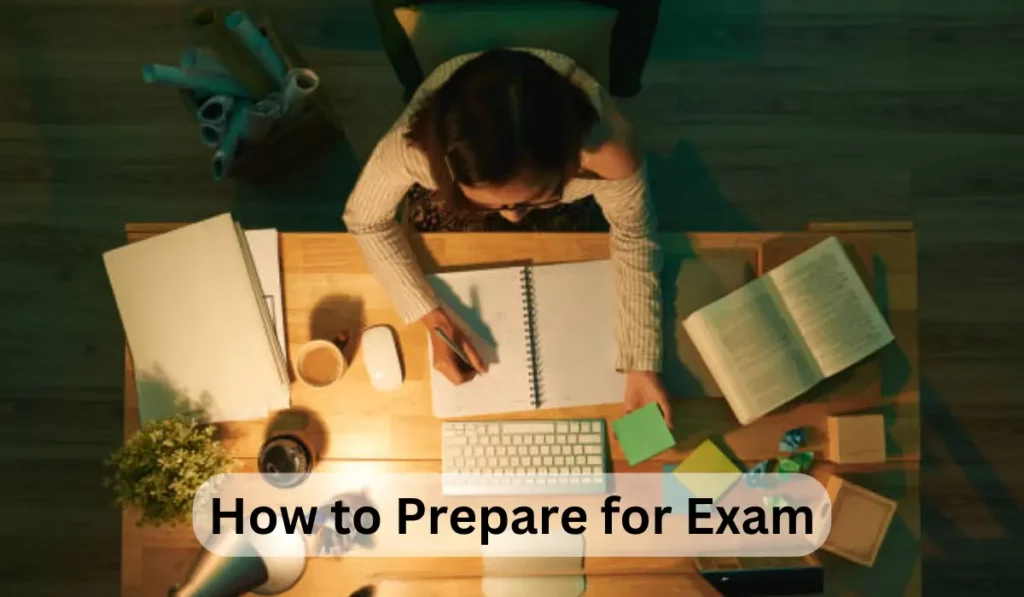Exams are a crucial part of college education. Students have to perform well and score high grades. So, as a college student, you must know how to prepare for exams and score better grades. Preparing for exams can become stressful and dreadful if you don’t plan your preparation and follow it consistently.
The article discusses strategies on how to prepare for exams and avoid unnecessary stress, anxiety, and disappointment. Some of the tips for preparing for exams include studying regularly, practicing old exams, organizing your study space to reduce distractions, using flow charts and diagrams, and doing group study.
Give Yourself Enough Time to Study
Give yourself enough time to study by starting your exam preparation early. Do not procrastinate or postpone your exam preparation until the last few days before exams. You will have to study under immense mental pressure, and it can become counter-productive.
So, start your preparation early and create a study schedule showing you what to study and when to study. The study schedule must contain all exams and their dates. Identify a subject that you want to prepare, allot a certain amount of time, and set a definite and realistic deadline.
Organize Your Study Space
Organize and declutter your study space by removing things that are not important while studying. It reduces distractions and allows you to focus more on your study. You can organize and optimize your study space by placing important books and study materials on the study table.
Place a comfortable chair and table in your study space. Ensure that the lighting is good and provides enough brightness around the study space.
Reduce distractions by moving your mobile, computer games, and any other entertainment stuff away from the study space. You can maintain silence or play relaxing music to improve your focus on your studies.
Use Flow Charts and Diagrams
Use flow charts and diagrams for understanding and remembering the important concepts and terms. Your mind will associate key concepts with the diagram or flow chart you used while preparing so that you can easily remember the concepts in the exam.
Take detailed notes and understand the topic while learning it for the first time. Create a visual flow chart or diagram while revising the topics.
Practice on Old Exams
Practice on old exams by writing answers for questions that appeared in past year exams. Set a specific time duration and simulate the exam situation while solving past year exam papers. It will familiarise you with question format, exam conditions, and exam pressure. It allows you to implement your time management and exam-taking strategies.
Join Study Groups with Friends
Join study groups with like-minded friends who are sincerely studying to score better grades. Organize study sessions focused on a specific topic, ask your doubts, and listen to your friends explain the topic. Study groups can enhance your learning and give you a unique perspective that can deepen your understanding.
Take Breaks Regularly
Take breaks regularly to recharge your mental energy levels and focus. Continuous study without breaks can make you mentally, emotionally, and physically tired and ruin your performance in exams. Take regular breaks of short duration to avoid the counterproductive effects of continuous and break-less study schedules.
Eat Healthy Food and Drink Enough Water
Eat healthy food like vegetables, fresh meats, fruits, and organic food items. Avoid junk foods and excessive sugar to keep yourself in good physical and mental condition. Consume nutritious foods to enhance your mental focus and concentration.
Being hydrated is important during the last few days of exam preparation and on exam day. Drink plenty of water every day to avoid any dehydration mishaps during exam days.
Final Words
Every student must know how to prepare for exams and perform well in them. You must plan your exam preparation and use proven strategies to stay ahead and learn the entire syllabus. Starting your preparation early gives you ample time for revising and creating visual aids like flowcharts and diagrams for better retention of the concepts.






